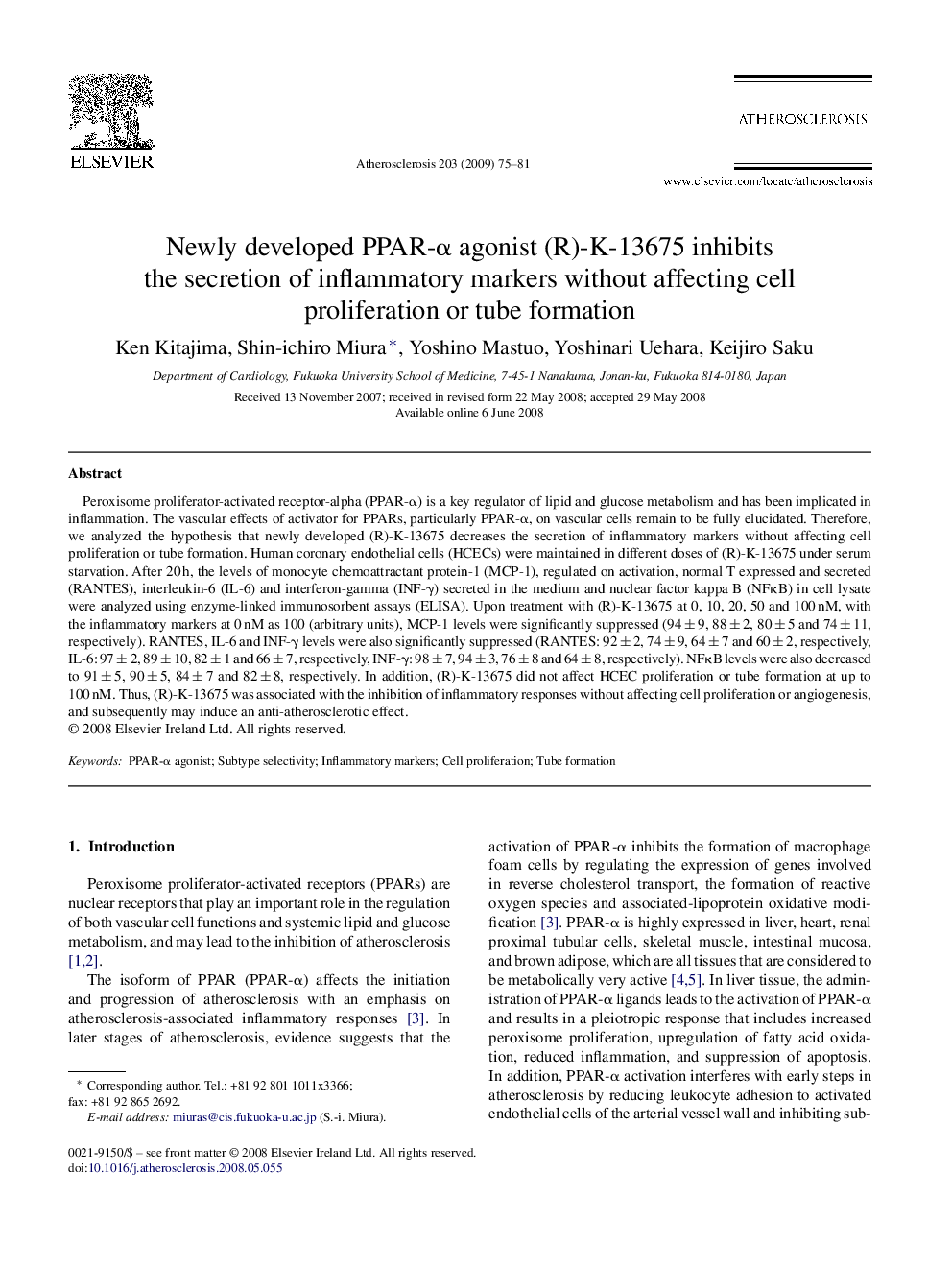| Article ID | Journal | Published Year | Pages | File Type |
|---|---|---|---|---|
| 5951486 | Atherosclerosis | 2009 | 7 Pages |
Abstract
Peroxisome proliferator-activated receptor-alpha (PPAR-α) is a key regulator of lipid and glucose metabolism and has been implicated in inflammation. The vascular effects of activator for PPARs, particularly PPAR-α, on vascular cells remain to be fully elucidated. Therefore, we analyzed the hypothesis that newly developed (R)-K-13675 decreases the secretion of inflammatory markers without affecting cell proliferation or tube formation. Human coronary endothelial cells (HCECs) were maintained in different doses of (R)-K-13675 under serum starvation. After 20 h, the levels of monocyte chemoattractant protein-1 (MCP-1), regulated on activation, normal T expressed and secreted (RANTES), interleukin-6 (IL-6) and interferon-gamma (INF-γ) secreted in the medium and nuclear factor kappa B (NFκB) in cell lysate were analyzed using enzyme-linked immunosorbent assays (ELISA). Upon treatment with (R)-K-13675 at 0, 10, 20, 50 and 100 nM, with the inflammatory markers at 0 nM as 100 (arbitrary units), MCP-1 levels were significantly suppressed (94 ± 9, 88 ± 2, 80 ± 5 and 74 ± 11, respectively). RANTES, IL-6 and INF-γ levels were also significantly suppressed (RANTES: 92 ± 2, 74 ± 9, 64 ± 7 and 60 ± 2, respectively, IL-6: 97 ± 2, 89 ± 10, 82 ± 1 and 66 ± 7, respectively, INF-γ: 98 ± 7, 94 ± 3, 76 ± 8 and 64 ± 8, respectively). NFκB levels were also decreased to 91 ± 5, 90 ± 5, 84 ± 7 and 82 ± 8, respectively. In addition, (R)-K-13675 did not affect HCEC proliferation or tube formation at up to 100 nM. Thus, (R)-K-13675 was associated with the inhibition of inflammatory responses without affecting cell proliferation or angiogenesis, and subsequently may induce an anti-atherosclerotic effect.
Related Topics
Health Sciences
Medicine and Dentistry
Cardiology and Cardiovascular Medicine
Authors
Ken Kitajima, Shin-ichiro Miura, Yoshino Mastuo, Yoshinari Uehara, Keijiro Saku,
